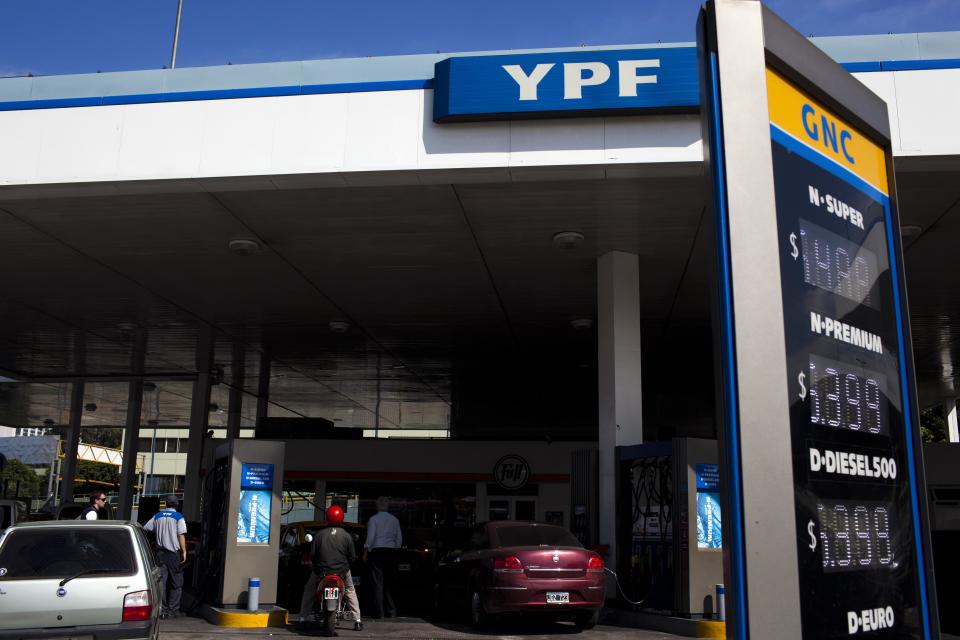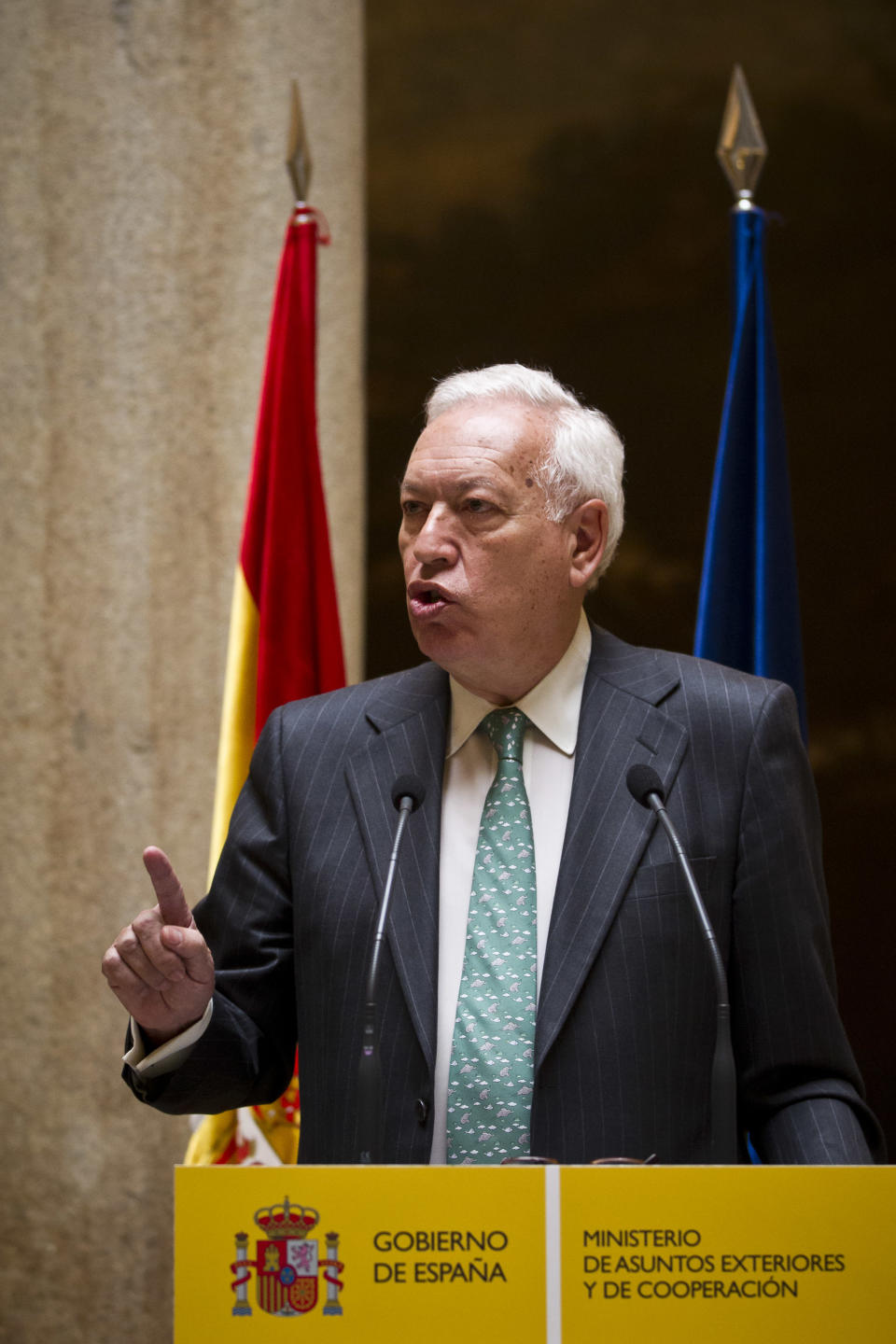Spain slams Argentina amid escalating oil dispute
BUENOS AIRES, Argentina (AP) — Spanish officials warned Argentina on Friday that the country risks becoming "an international pariah" if it follows through on its threats to wrest control of Spanish-owned energy company Repsol's majority stake in its South American YPF unit.
Escalating tensions, Spanish Foreign Minister Jose Manuel Garcia-Margallo summoned Argentine Ambassador Carlo Antonio Bettini to convey Spain's "concern" over possible nationalization of YPF, which represents 42 percent of Repsol's total reserves, estimated at 2.1 billion barrels of crude.
"Breaking the rules comes with a cost, and Argentina could turn itself into an international pariah," said Inigo Mendez de Vigo, Spain's Secretary of State for European Affairs, in an interview aired on the Onda Cero radio network.
Garcia-Margallo said after the hour-long meeting with Bettini that he hopes dialogue can resolve matters, but that any "attack" on Repsol would be considered "an assault on the Spanish government."
YPF is Argentina's biggest company, and Spain is Argentina's largest foreign investor, with the United States in second place.
Shares of Repsol YPF SA closed down 2.7 percent to €17.47 ($22.97) in Madrid amid the escalating dispute and a widespread sell-off for Spain's benchmark Ibex index — even though Repsol told Spanish security regulators that Argentina had yet to provide any official word of its plans for YPF.
Speculation about a possible renationalization of the formerly state-owned company had driven shares in YPF up sharply Thursday. Those shares fell Friday with the lack of an announcement.
Most YPF shares are traded in New York, where they dropped 5 percent in early trading, continuing a 35 percent slide since Argentine leaders began pressuring the company in January.
Governors of oil-producing Argentine provinces have withdrawn about 15 oil leases, representing 18 percent of YPF's crude production, alleging the company failed to keep its promises to develop them. YPF countered that it had invested millions in those areas and plans to increase production, but Argentine officials have said that still falls short.
How Argentina may try to displace Repsol, which owns 57 percent of YPF, has been the subject of wide speculation since the government's pressure campaign began in February. Even with its share prices depressed, YPF is valued at $13.6 billion, and buying half of that would deplete Argentina's treasury of funds it needs to maintain the populist subsidies that have kept the country's economy humming.
Expectations rose sharply this week when Jorge Sapag, governor of oil-producing Neuquen province, told reporters that "what's coming is a mixed (public-private) company" whose board would include representatives from Argentina's provinces.
A proposed law then circulated among Argentine lawmakers Thursday, declaring 50.01 percent of YPF shares "a public good" subject to government expropriation. The proposal wasn't formally submitted to Congress, nor was there any announcement from President Cristina Fernandez following her meeting with a governors group.
Fernandez was flying Friday afternoon to a regional summit in Colombia, leaving nearly everyone involved in suspense about Argentina's next move.
Her only public comments came in an unrelated address to the nation Thursday night, when without mentioning Repsol-YPF by name, she said she was "ready to pay all the prices that must be paid" to keep Argentina growing.
Spanish Vice President Soraya Saenz de Santamaria said Friday that Spain will respond forcefully if Argentina follows through with the nationalization. Asked for details, the vice president implicitly drew a sharp distinction between Spain's approach and Argentina's tactic of encouraging speculation.
"These measures aren't advertised, they're simply adopted," she said.
Repsol President Antonio Brufau was still in Argentina's capital Friday morning, but a company spokesman said he had no information on Brufau's agenda.
The European Union has taken Spain's side. Olivier Bailly, a spokesman for the EU's executive, told reporters the commission hopes Argentina shows respect for "international engagements on the treatment and the protection of international investments on its territory."
"We stand side-by-side with Spain in this situation," he said, adding that the two countries must forge a solution that does not "damage the working environment and economic relations between the European Union and Argentina."
___
Associated Press Writers Alan Clendenning in Madrid, Almudena Calatrava in Buenos Aires and Gabriele Steinhauser in Brussels contributed to this report.




